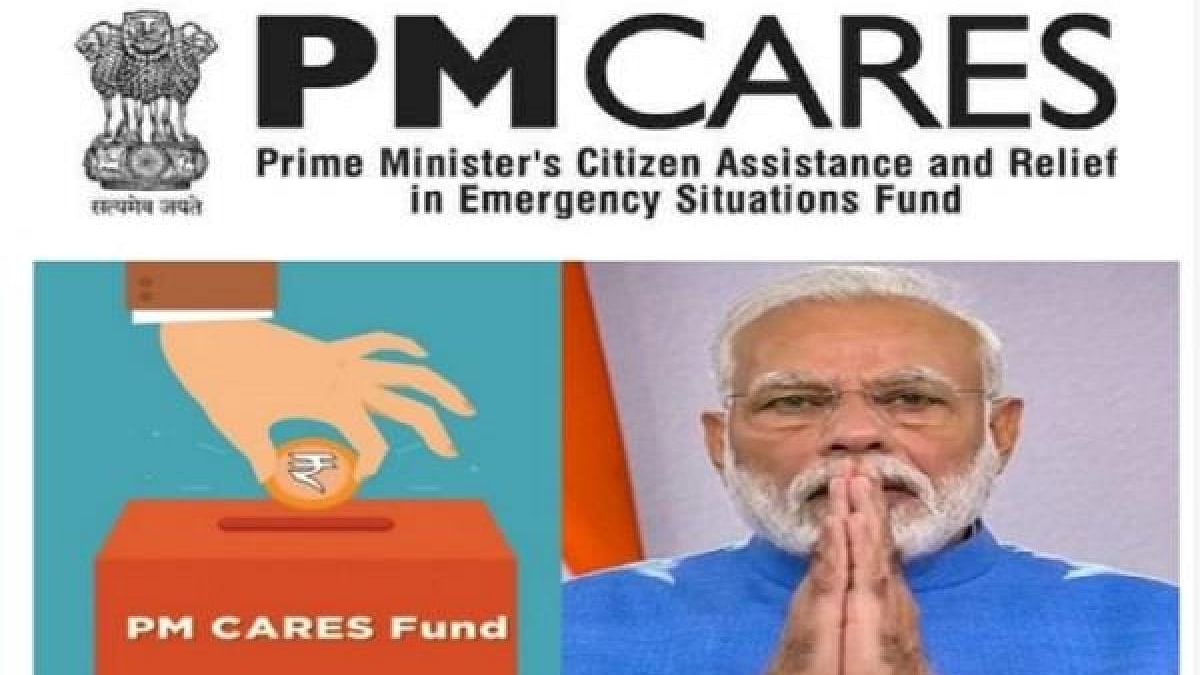Prime Minister’s “CARES” fund not for your eyes
 NEW DELHI : The Prime Minister’s Office has refused to provide copies of the trust deed of the PM CARES Fund, besides those of the government orders, notifications and circulars related to its creation, saying the fund is not a public authority and is therefore exempt from the Right to Information (RTI) Act.
NEW DELHI : The Prime Minister’s Office has refused to provide copies of the trust deed of the PM CARES Fund, besides those of the government orders, notifications and circulars related to its creation, saying the fund is not a public authority and is therefore exempt from the Right to Information (RTI) Act.
The RTI application was filed on April 1, a few days after the fund was created to draw “voluntary” contributions towards combating the pandemic and similar crises.
“PM CARES Fund is not a public authority under the ambit of Section 2(h) of the RTI Act, 2005. However, relevant information in respect of PM CARES Fund may be seen on the website pmcares.gov.in,” the PMO said in reply to an RTI application from Azim Premji University LLM student Harsha Kandukuri.
The fund – Prime Minister’s Citizen Assistance and Relief in Emergency Situations Fund –was created on March 28 to deal with any emergency posed by the COVID-19 pandemic. According to news reports, while PM Narendra Modi would be its ex-officio chairman, its trustees were to be Union home minister Amit Shah, defence minister Rajnath Singh and finance minister Nirmala Sitharaman.
The opposition had questioned the need for a creation of the Fund as the PM’s National Relief Fund (PMNRF) already exists to receive donations for such emergencies. Looking at the composition of the trust members of PM Cares Fund, Kandukuri had sought copies of the trust deed and all government orders, circulars and notifications related to its creation and functioning.
Bhardwaj of the Satark Nagrik Sangathan wondered what there was to hide. “They are collecting funds from the people to be used for the welfare of the people. So, there is interest in where the money is coming from and how it will be used.
What is there to hide?”
Questions have been raised since the day the PM CARES Fund was set up. Many have queried the need for a new fund when the PMNRF already existed and boasted Rs 3,800 crore, according to audited accounts for 2018-19. The opacity around the PM CARES Fund too has raised eyebrows.
The website does not provide any details of the contributions received over the past couple of months or of the spending although Modi claims to run a transparent administration. Till now, there has only been one publicised allocation from the new fund, announced on May 13 that of Rs 3,100 crore for ventilators, migrant workers’ welfare and vaccine development.
This is less than half the Rs 6,500 crore estimated to have been collected in the first week. This figure is not official but is based on public announcements of donations by corporate houses and various government departments and institutions.
Even the chief ministers’ relief funds don’t follow a common template when it comes to the RTI law or to proactive transparency.The Kerala chief minister’s disaster relief fund is among the most transparent to the extent of updating daily donations and expenditures — and states it is covered under the RTI law. Few others are so upfront.
By then, various ministries and government departments had issued circulars to its employees to contribute one day’s salary to the Fund. The donation could be paid between this May to next March, covering the entire fiscal year. In some cases, the donations raised voluntarily for PMNRF too have been directed to the PM-CARES Fund by the administration.
The central public sector enterprises under the ministries of power and new and renewable energy had contributed Rs 925 crore by April 3, while public sector oil companies including ONGC, IOC, Bharat Petroleum had contributed over Rs 1,000 crore.”
As per the RTI Act, a public authority means any authority, body or institution of self-government established or constituted a)by or under the constitution; b) by any other law made by parliament; c) by any other law made by the state legislature and d) by notification issued or order made by the appropriate government. It also includes “body owned, controlled or substantially financed; non-governmental organisation substantially financed directly or indirectly by funds provided by the appropriate government”.
Speaking to LiveLaw, Kandukuri said he would file a statutory appeal against the decision of the PMO.“By denying PM Cares Fund the status of ‘public authority’, it is only reasonable to infer that it is not controlled by the Government. If that is the case, who is controlling it? The name, the composition of the trust, control, usage of emblem, government domain name everything signifies that it is a public authority.
Earlier, the Comptroller and Auditor General’s office had clarified to that it wouldn’t audit PM-CARES Fund as it is “a charitable organisation” and “based on donations from individuals and organisations”. The PMNRF too is not audited by CAG but by an independent auditor outside of the government.
In 2018, a division bench of the Delhi high court was split on the issue of whether PMNRF is a public authority under the RTI Act and is liable to disclosure of information to applicants. While Justice Ravindra Bhat felt it was a public authority, Justice Sunil Gaur differed. The matter was thereafter forwarded to the acting chief justice of the HC for an opinion. The issue is still pending.
(With Agency Inputs ).
C

